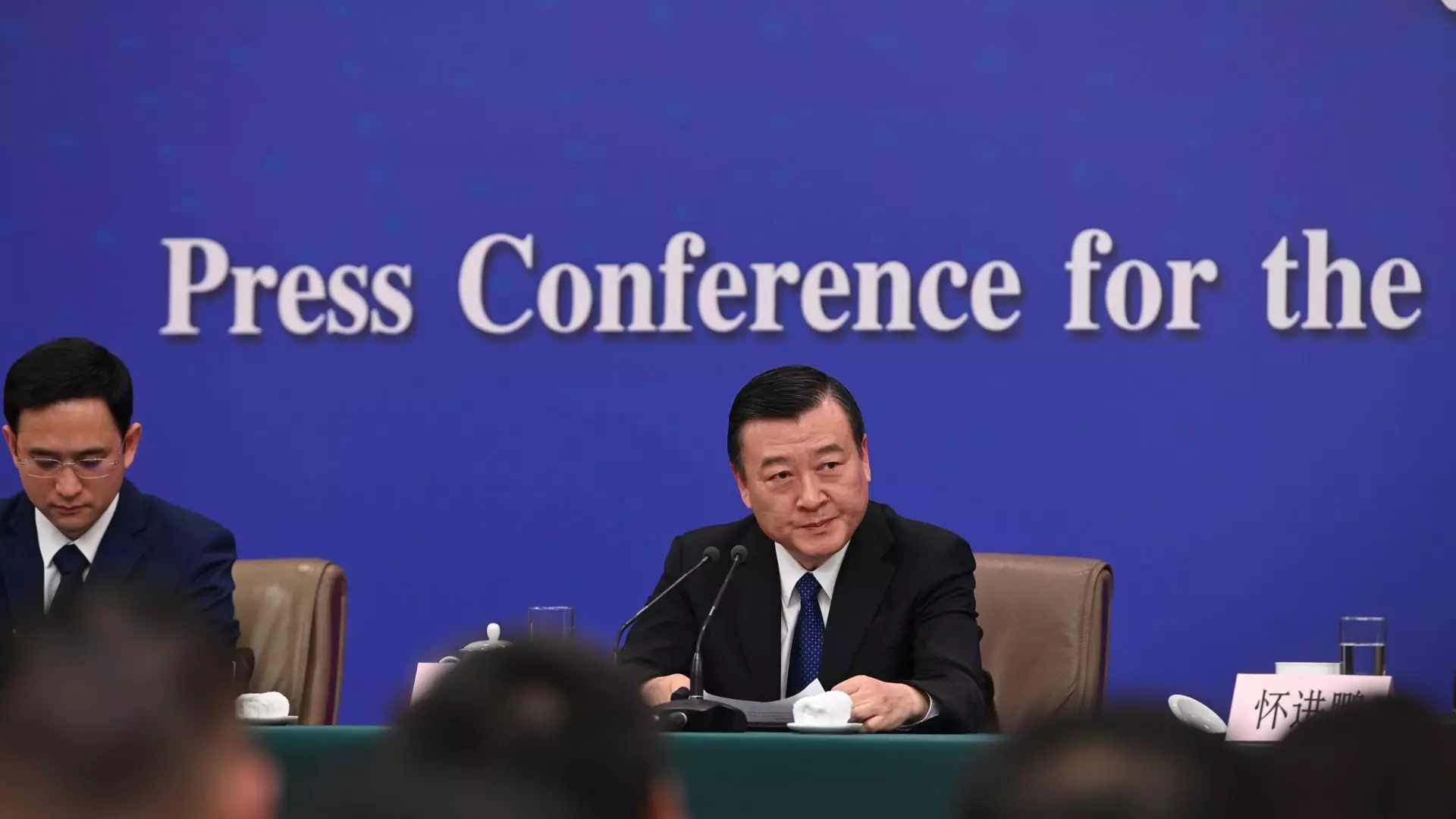China’s real estate sector is once again under the spotlight as government officials outline expansive initiatives intended to revive the beleaguered market. With mounting losses and investor skepticism, the recent announcements surrounding the expansion of the “whitelist” for real estate projects mark a pivotal moment for an industry grappling with a spiraling downturn.
In a bold declaration, China’s Minister of Housing and Urban-Rural Development, Ni Hong, stated that the government plans to expedite bank lending for unfinished real estate projects, increasing the total loan amount to a staggering 4 trillion yuan (approximately $561.8 billion) by the end of 2024. This initiative follows an already substantial approval of 2.23 trillion yuan, aimed at alleviating financial strains on developers. The introduction of the “whitelist” initiative in January allowed city governments to endorse residential projects for quicker bank approvals, aiming to ensure that multiple stalled housing projects could ultimately be delivered to homebuyers waiting in limbo.
This announcement reflects not just a perception that the real estate sector is essential for economic stability, but also a recognition that urgent actions are necessary to restore confidence among stakeholders. By enabling banks to lend funds more swiftly and comprehensively, the government is attempting to break the cycle of uncertainty that has plagued the market.
The expansion of the whitelist now includes all commercial housing projects, which signifies a notable broadening of the initiative’s eligibility criteria. Xiao Yuanqi, the vice minister of the administration, emphasized the critical nature of speedy fund deployment, urging banks to disburse full amounts rather than fragmented tranches. This accelerated timing is paramount because it aligns with the overarching goal of reviving the property market by ensuring that as many projects as possible reach completion.
In tandem with this initiative, the People’s Bank of China recently lowered the reserve requirement ratio, signaling a move to enhance liquidity in the financial system. Additionally, the minimum down payment for second-home buyers was also reduced, further incentivizing purchases in a struggling market. These interconnected measures showcase a coordinated effort by various governmental bodies to stimulate economic activity through real estate.
Despite these announcements, market reactions illustrate a juxtaposition of optimism and skepticism. Following Ni Hong’s statements, the Chinese CSI 300 real estate index experienced a troubling drop of over 5%, contrasting against the gains seen in preceding sessions. Investor apprehension is evident, particularly as many remain unconvinced that the latest measures are sufficient to turn the market around. Economic analysts, such as Chi Lo from BNP Paribas Asset Management, have voiced the concern that the effectiveness of the stimulus measures remains uncertain, leaving investors on shaky ground.
Furthermore, while the government express commitment to halt the decline of the real estate market, the ongoing volatility and lack of improvements in property sales and prices raise questions. It appears that months or even years of policy finesse will be needed before significant recovery is observed.
The Chinese government is not shying away from applying multifaceted strategies to revitalize the real estate market. Announcements from the Ministry of Finance revealing plans for more special bond issuances and flexible housing subsidies illustrate a broader strategy to boost market activity. Coupled with easing restrictions on home purchases in major cities like Beijing and Shanghai, these measures signal a decisive moment in governmental intervention aimed at stimulating demand.
The proactive approach comes as recent data laid bare the struggles of the housing market, with new home prices suffering their most significant decline in nearly a decade. The decrease highlights the broader challenges facing developers, many of whom are restructuring or facing bankruptcy as they contend with defaults and incomplete projects.
After years of real estate market challenges exacerbated by crackdowns on high debt levels, the future remains uncertain. The latest government initiatives represent a robust response to a pressing crisis that has deeply affected consumer confidence and investment. However, the road to recovery will likely require patience, continuous adjustments, and an unwavering commitment to steering the market back toward stability. China’s real estate market, once a cornerstone of its economic might, is at a pivotal crossroads, and whether these interventions will lead to a durable recovery remains to be seen.
In short, while the measures announced may signal an optimistic turn for policymakers, the reality of instilling long-term confidence in both developers and buyers presents an ongoing and formidable challenge.

